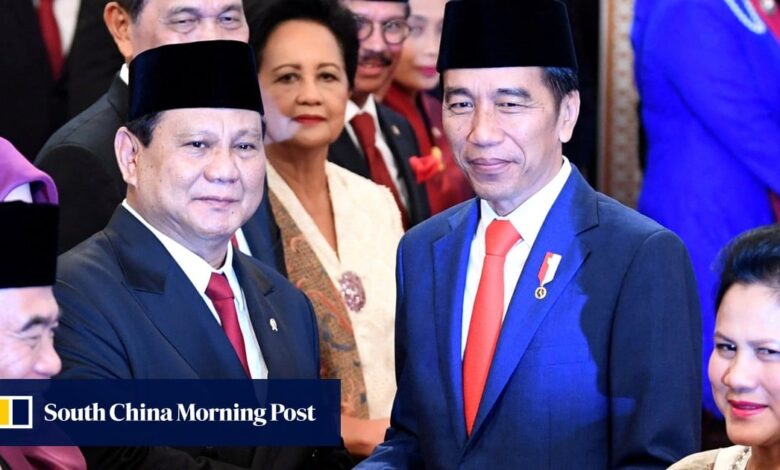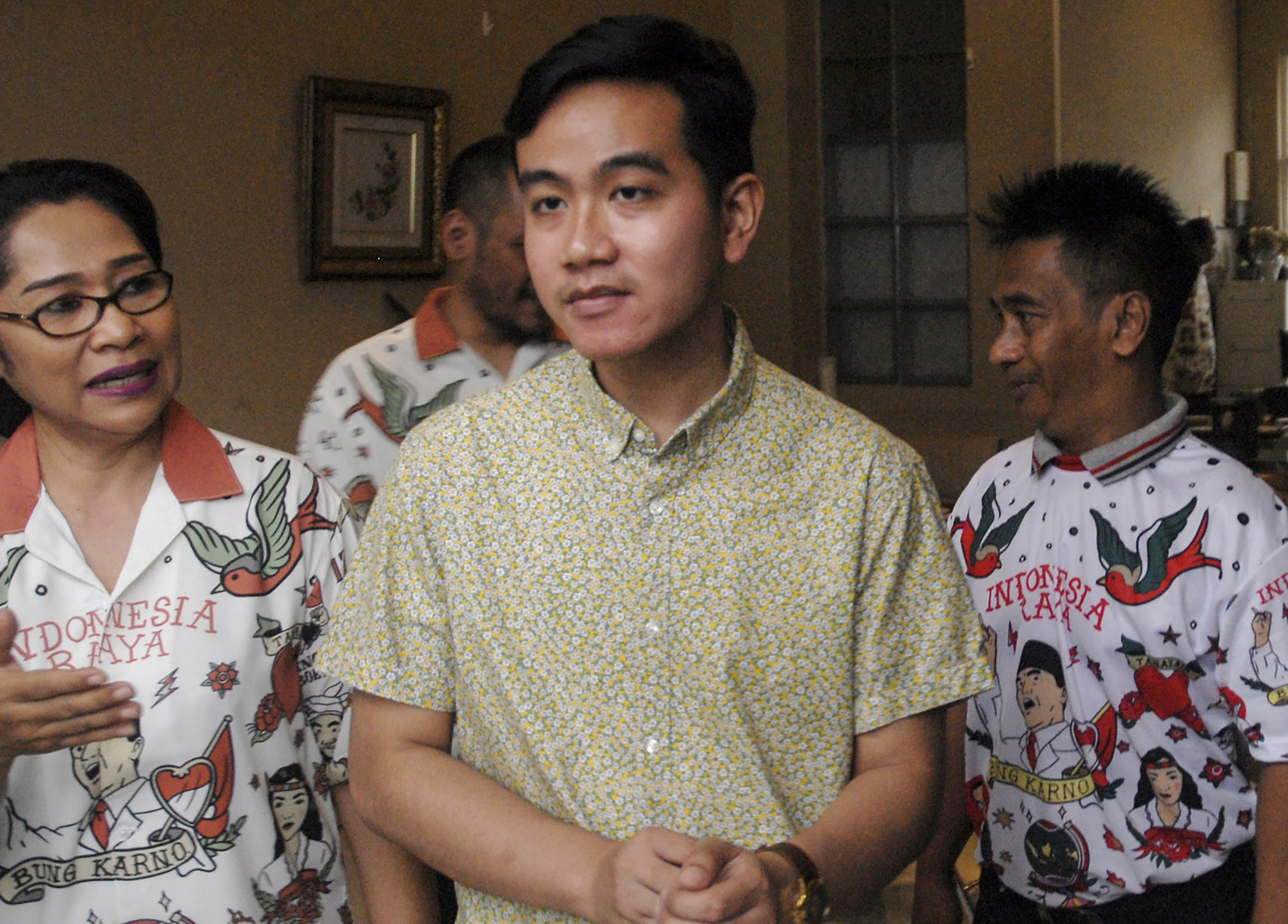Indonesia’s Jokowi ‘not ready to part with power’ as opaque ‘double game’ naming successor keeps voters guessing

[ad_1]
“This is just showing that he is every bit as much a transactional, practical and self-interested politician as his contemporaries,” Sana Jaffrey, a research fellow at Australia’s National University who specialised in Indonesian politics, said of the president’s divided loyalties.
“He is just not ready to part with power yet.”
Could rise of Jokowi’s ‘political clan’ lift Prabowo’s chances in Indonesia’s presidential race?
Could rise of Jokowi’s ‘political clan’ lift Prabowo’s chances in Indonesia’s presidential race?
The presidential palace did not respond to multiple requests for comment.
Jokowi is not allowed to seek re-election after serving the maximum two terms.
A September opinion poll put Prabowo ahead of Ganjar 34 per cent to 30 per cent with a third candidate trailing. Other surveys show a tighter race.

The endorsement of Jokowi, who commands approval ratings of 80 per cent, will have a direct bearing on who wins February’s election.
In the strongest signal yet about who Jokowi is likely to throw his weight behind, his vast, informal volunteer network, Projo, on Saturday announced that it endorsed Prabowo as its candidate of choice.
“The president told us some criteria of his future successor,” said Projo chief Budi Arie Setiadi during a press conference at Prabowo’s Jakarta home.
“We conclude what the president meant was Prabowo Subianto.”
Indonesia’s Prabowo most qualified to become president, brother Hashim says
Indonesia’s Prabowo most qualified to become president, brother Hashim says
The endorsement was the latest and most public move in what 10 sources describe as an opaque “double game” that Jokowi has been playing for months.
In August, Jokowi abruptly summoned the head of Golkar, Indonesia’s second-largest parliamentary party, to the palace, and instructed him to endorse Prabowo, even though the party had been poised to declare support for Ganjar, four sources with direct knowledge of the meeting said.
The National Mandate Party (PAN) received the same instruction, two sources said.
Days later Golkar and PAN announced support for Prabowo, giving him the largest party support base.
It’s not just patronage as usual, it’s brazen in a way that we haven’t seen for a long time
PAN denied this account, while presidential staffers and Golkar did not respond to requests for comment.
Jokowi has also lent support to Ganjar, deploying teams and volunteer groups to work on his campaign, four sources said.
As recently as September, the president appeared on stage at a national PDI-P event, telling the crowd he had advised Ganjar to start planning for the day he would lead the nation.
“I whispered to him, ‘After you’re inaugurated – a day after you’re inaugurated – you have to take care of food self-sufficiency. Don’t take too long’,” Jokowi said.
A rift emerges between Jokowi, Megawati in Indonesia’s battle of the kingmakers
A rift emerges between Jokowi, Megawati in Indonesia’s battle of the kingmakers
Jokowi has also engaged in talks about vice-presidential picks for both Ganjar and Prabowo, three sources said.
The head of Ganjar’s campaign team said he was unconcerned about the claims as Jokowi had explicitly expressed for support for Ganjar’s candidacy, something he has not done for any other candidate.
The back-room machinations are striking in a country that in 1998 forced a corrupt and nepotistic autocrat, Suharto, to step down after three decades in power.

Jokowi was elected in part because he was seen as independent from the Suharto-era old guard, while Prabowo is Suharto’s ex son-in-law and the former head of the special forces.
In his decade in power, analysts say, Jokowi has deepened Indonesia’s entrenched patronage politics, although this has done little to dent his popularity across the sprawling archipelago of more than 270 million people.
“It’s not just patronage as usual, it’s brazen in a way that we haven’t seen for a long time,” said Australia’s National University’s Jaffrey.
Recent developments also suggest Jokowi has an eye on building his nascent dynasty.

His eldest son, Gibran Rakabuming Raka, the 36-year old mayor of Surakarta, has been touted as a possible vice-presidential candidate for Prabowo, although the legal minimum age is 40.
The Constitutional Court, headed by Jokowi’s brother-in-law, is expected to rule on Monday on requests to lower the age limit.
Jokowi’s youngest son, Kaesang Pangarep, 28, was recently appointed head of the Indonesian Solidarity Party just days after joining.
In Medan, Indonesia’s third-largest city, Jokowi’s son-in-law, Bobby Nasution, is the mayor.
Jokowi the kingmaker? Search for a successor grips Indonesia’s ruling party
Jokowi the kingmaker? Search for a successor grips Indonesia’s ruling party
With the uncertainty over where Jokowi’s loyalties lie, these placements are deliberate, said Yoes C. Kenawas, a research fellow from Atma Jaya University who studies dynastic politics.
“Ganjar and Prabowo are ‘Jokowi’s men’ but who knows after Jokowi steps down,” he said. “Blood is thicker than water.”
[ad_2]
Source link

